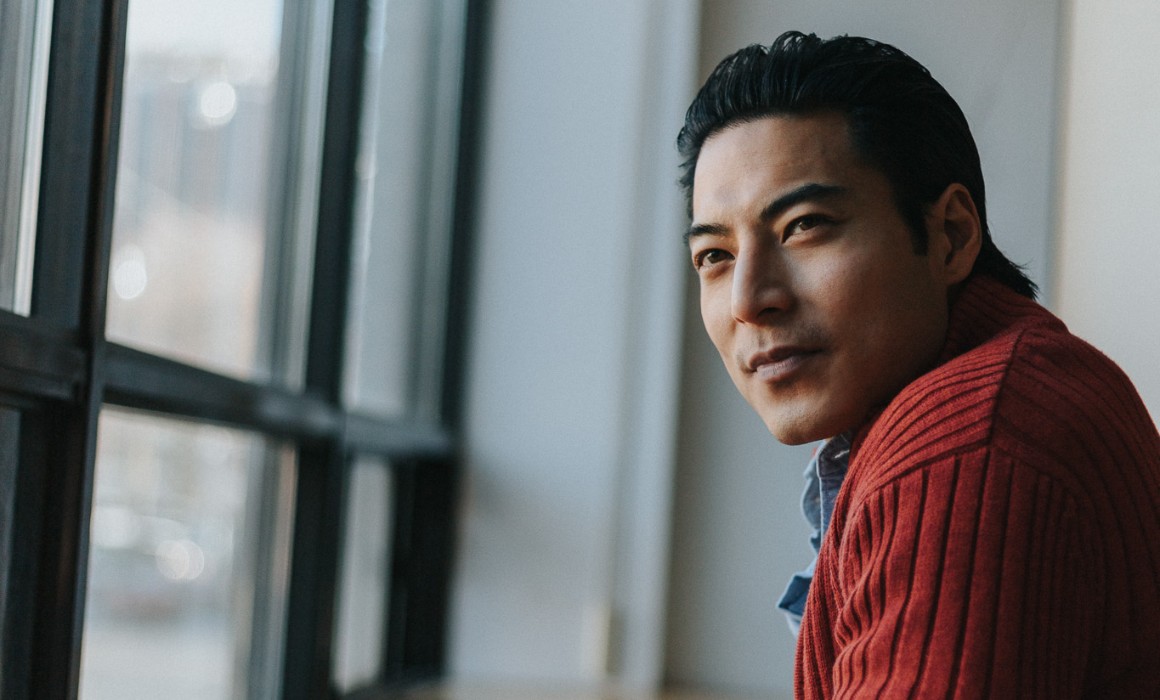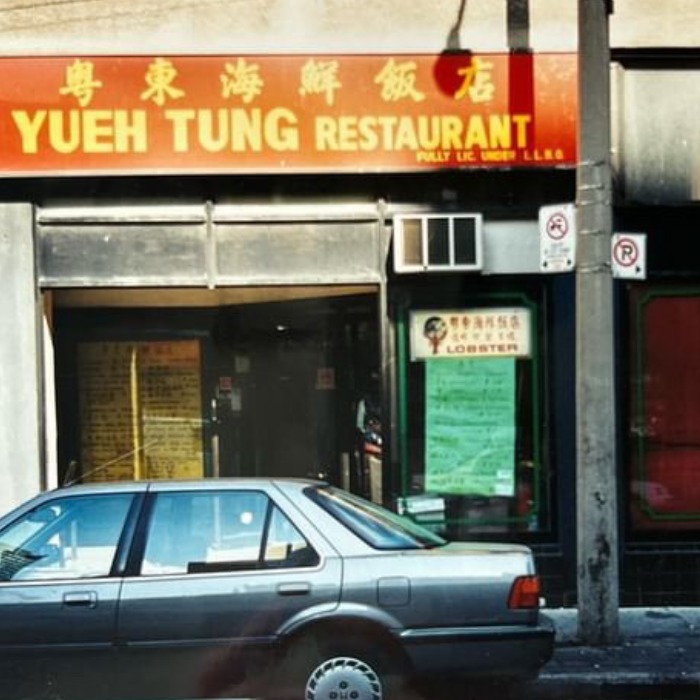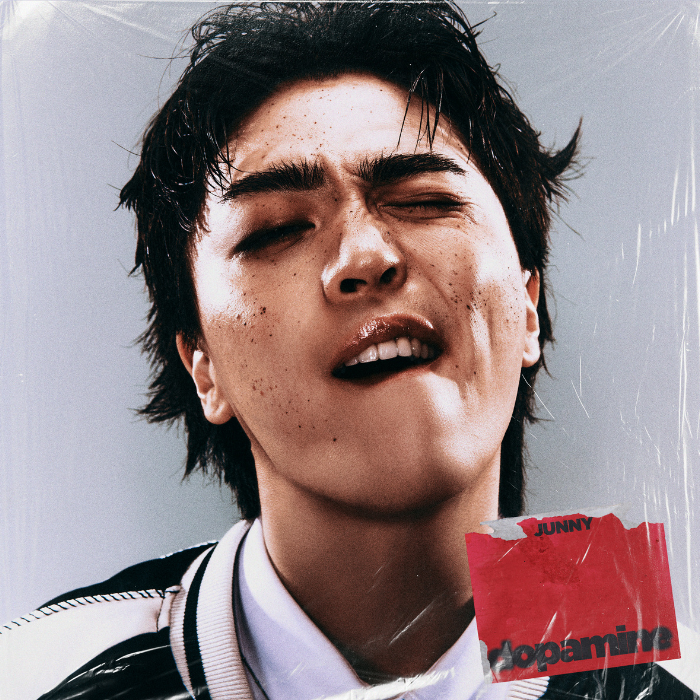Chase Tang never intended on being an actor.
The 31-year-old, who was born in Taipei, Taiwan, and moved to Canada at the age of six, initially had his hopes set on being a professional hockey player, having played alongside current NHL superstar Brad Marchand while growing up in Bedford, Nova Scotia.
When his hockey dreams didn’t pan out, Tang (born Chia-Hao Tang), went out to pursue a degree in business at the University of Guelph before joining the corporate world. However, while working, he had aspirations of going into acting, which stemmed from his childhood love of movies and Hollywood.
By the end of 2015, Chase made the decision to leave his corporate career behind to pursue the film industry. Flash forward to now, and Tang is set to star in Netflix’s upcoming superhero drama Jupiter’s Legacy, where he plays super-villain Baryon alongside actors Josh Duhamel, Ben Daniels and Leslie Bibb. The rising star also landed a spot in the UN Environment Programme (UNEP)’s #WorldIsInOurHands campaign, which was designed to raise awareness, ambition, and action around climate change and to accelerate implementation of the Paris Agreement, and was named Global Spokesperson for popular bubble tea brand, Presotea earlier this year.
Below, Chase speaks to The RepresentASIAN Project about embracing his Asian identity, using his platform to raise mental health awareness, and what it’s like to be an Asian actor in 2020.


On growing up Asian in a predominately-white hockey town
My family immigrated from Taiwan to Nova Scotia in 1994. I was six years old. I think because I was so young, didn’t really notice the transition from Taiwan to Canada. It was very seamless. We were fortunate that we moved to a small town in Bedford, and we had some amazing neighbours. Even though we were one of the few only Asian [families] in the whole city, everybody was just so polite and I think looking back now, you just rarely see that, so we were very fortunate, we really lucked out.
I played hockey at a very, very high level. I was fortunate that at a young age my dad always pushed us into sports and we picked up hockey probably quicker than some of the other Caucasian kids. We kind of became known as the hockey family — three boys [editor’s note: Chase has two older brothers] all playing hockey. Because the town that we lived in wasn’t super big, everyone started to know us and we had a certain identity that we were an immigrant family who was very good at hockey with the potential of one of us playing professionally.
When I looked in the mirror as a kid, I didn’t see an Asian kid. I saw a white kid who had Asian features. And that would just show you how Caucasian and how big hockey is in Nova Scotia. I was very fortunate that I could get a certain level of acceptance and popularity just through athletics. All my friends were all Caucasian and occasionally people would refer to me as an Asian person, but the funny thing is I never really saw myself as an Asian person until I moved to Ontario.
I think if I didn’t play hockey, if I didn’t have athletics, I would have probably faced more discrimination. I really feel that. I think my childhood would have been a lot harder… I mean my childhood was very smooth, but I didn’t really deal with much bullying. You had the occasional racial slur said to you, but I was never a kid who got bullied or picked on because I was Asian. And I think playing sports, it does, in a way can protect you from that.

On learning to embrace his Asian identity
I think because I did come here so young, my upbringing, my core, is very much Western. But I like to educate myself in so many different things. Even though I was brought up as a “Western” person, I feel as though I’ve really educated myself really well on understanding Asian culture.
I’ve definitely embraced my Asian identity now, for sure. My girlfriend [ed.’s note: now fiancée] of five years is from Shenzhen, China. Growing up, if you would have talked to me before I left Nova Scotia about who I would marry… [I would have married a Caucasian girl].
Now, if I look at my circle of friends, the majority are Asian. It’s funny because growing up, I don’t think I had one Asian friend. But I look at the people I’m closest with… the top are all Asians. And when we hang out, we don’t speak Mandarin, we speak English, so I definitely feel that I’ve not only embraced [my culture] but I have a lot more in common with them. I think organically, you don’t have to try as hard. When you’re in high school you kind of always have to compensate for something. But now, when I’m around other Asians, I can truly be myself without having to make that little adjustment because I’m in a group of [Caucasians].
I’ve got a wide circle of friends across all races, but definitely I’ve found it organically so much easier to connect with Asians. We look similar, we can kind of all joke about the same prejudice stereotypes people have about us, I think sometimes having that comfort already lowers everybody’s walls and you don’t have to waste time on things… it’s way easier for sure.
When I looked in the mirror as a kid, I didn’t see an Asian kid. I saw a white kid who had Asian features.
On his decision to go into acting
When my hockey career was at its prime, my mom used to take my brothers and me to Taiwan. I used to have hair that was slightly longer and I kind of had a look that was similar to the famous boy bands in Taiwan. When I went to the mall in Taiwan when I was 13, it was crazy. I would get waves of people come up asking to take pictures with me. And back then, I was your typical ‘strong, silent type,’ I wasn’t talkative like I am now. So when these people approached me, I wouldn’t have the ability to start conversations, I was just very shy.

We were in Taiwan for a month and a half, and it happened a lot. So my mom and aunt asked me if I was interested in going into acting, but I [was more into hockey]. But that was when the first seed of [potentially going into modelling or acting] was planted in my head.
In my later years, I went into the corporate world and started working, but I always kept acting in the back of my mind because I loved watching movies and I was always so obsessed with anything Hollywood. That was where the interest first came in.
At the end of 2015, the corporate career was kind of falling apart a little bit, and I was like, ‘You know what? I’m not really struggling financially, I could stay unemployed for a few months while I look for another job.’ And I had this acting class bookmarked for about a year and a half, and I just decided I would click it and register, because if I didn’t do it then, it would never happen.

On changing his name
My legal name is Chia-Hao Tang. That’s the name that I’ve used for 27 years… I still use it for everything and I still use that name to introduce myself to people outside of entertainment.
Growing up, I knew that my name was always pronounced in a lot of different ways and it always got spelled incorrectly. And I also noticed that it caused a little bit of hesitation because it was kind of like that same hesitation people have when they don’t know your name and don’t want to talk to you as much because they don’t want to offend you.
I wanted a name that was similar to my current initials, that was short, and that was also a name that was easy to remember for casting directors and for agents and not that common. I just didn’t want to go through that same thing: “What’s your name again? How do you spell that?”
On mental health advocacy
I’ve experience depression and anxiety two different times in my life — in 2005 when my hockey career was dwindling and in 2015, the most severe I’ve ever experienced. It was the worst and hardest five months of my entire life. I experienced severe panic attacks from things that shouldn’t have caused them, like trying to find your shoe. And it would happen 20-30 times a day. It wore me out.
I went to see a psychologist for a couple of months and they’ve really helped me just understand how the mind works. I’m a pretty analytical person, but I have a good understanding of concepts.
Now, these last four years, I don’t think there’s been one day where I kind of wanted to stay in bed. Every day, I can’t wait to get out of bed, because I have so many things I need to do and need to work on. And when I go to sleep at night, it’s not because I want the day to end. I feel like I have a process and a formula that is so action-based and I want to share it with the world. And I just want people to see how relatable and how real this is.
The reality is, for me to say that I came in fighting a wave or fighting diversity, it would be a complete lie. I really didn’t. Simu Liu, Ludi Lin, Henry Golding, Chris Pang…these guys did. They fought a wall, and they pushed down that wall.
On being an Asian actor in 2020
I feel like I can name off the guys — like Simu Liu, Ludi Lin, Henry Golding, Chris Pang — of really successful Asian actors in Hollywood that have had phenomenal careers. I would definitely say I look up to them because their careers have been [great].
The reality is, for me to say that I came in fighting a wave or fighting diversity, it would be a complete lie. I really didn’t. These guys did. These guys, they fought a wall, and they pushed down that wall.
I met with some top agents across North America two years ago, and one of the things they told me was, “I just want to let you know, one of the only reasons we’re meeting with you is because you’re Asian.” So when people ask me, “Did you face any difficulty?”, I feel like the fact that I was Asian made it so much easier because they were like, “If you were Caucasian, we would not entertain this meeting and it’s not in demand.” It’s been a big, big advantage for sure.
I think it’s slightly [being treated as a trend]. You look at Crazy Rich Asians… Asians have always had purchasing power, but it’s almost as if we’re happy to spend our money even if people don’t include us. But it’s only until recently where we’re like, hey, we have purchasing power, we have numbers, so if you guys don’t include us, we’re not going to give you any of our money.
But now, I think it’s a combination of trend which turns to movement and I think it will spill over into a lot of things, whether it be in politics, academics… I think it will be across, in sports as well, but not just Asians, but for all ethnicities.
This interview has been edited for length and clarity.
Like this post? Follow The RepresentASIAN Project on Instagram, TikTok and YouTube to keep updated on the latest content.











